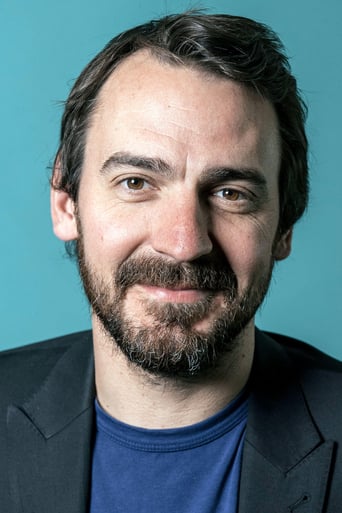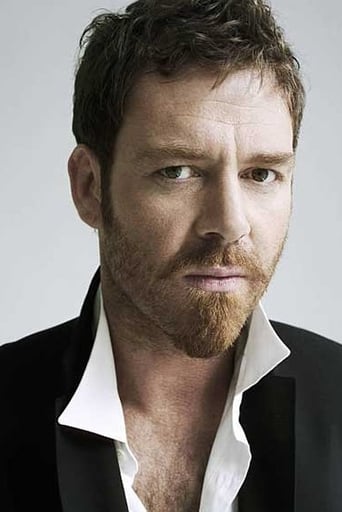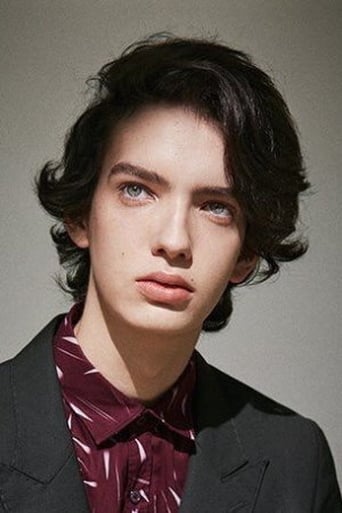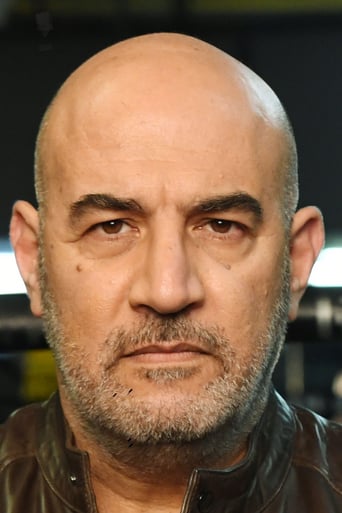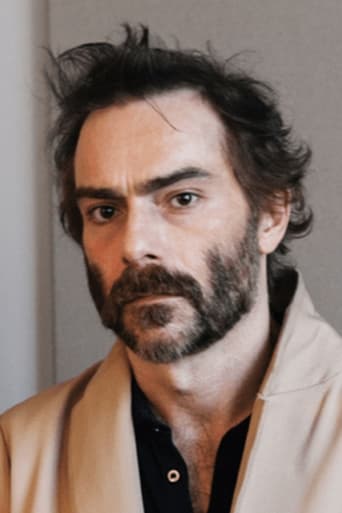Jeanskynebu
the audience applauded
Matho
The biggest problem with this movie is it’s a little better than you think it might be, which somehow makes it worse. As in, it takes itself a bit too seriously, which makes most of the movie feel kind of dull.
Marva
It is an exhilarating, distressing, funny and profound film, with one of the more memorable film scores in years,
Bob
This is one of the best movies I’ve seen in a very long time. You have to go and see this on the big screen.
emilywes56
I saw Dead Europe today. I had seen the trailer by coincidence and I found it interesting enough since I follow the things going on in Europe and especially in Greece (I'm Greek). Also I was very curious to see the point of view from an Australian/German/Jewish director for the state of things here, since Australia is so far away. For me the movie is 10/10. In the beginning I had my doubts about the plot and the connection director had made between the story of the main character which seems to be a reference to the Greek cultural traditions and the myths (villages, well-hidden secrets, family relationships etc.) and the economical and political crisis. I expected it to be much less than what it actually is. It is a very serious, important and true movie.
larry-411
Christos Tsiolkas' 2006 novel "Dead Europe" was a chilling tale of a young Australian photographer bringing his father's ashes back to his native Greece, where he begins to have some otherworldly experiences. Being Jewish, gay, and of Greek descent, the Aussie author weaves his own sexual and spiritual beliefs into the character of Isaac to craft a thoroughly believable narrative that resonated with readers worldwide.Turning this award-winning book into a movie involved a set of serendipitous circumstances, as director Tony Krawitz explained in the Q&A following the screening here in Toronto. He got a call from his producer Liz Watts, telling him about a book by an Australian author that would make a good motion picture. In fact, Krawitz had just read Tsiolkas' novel a month earlier but Watts had no idea. It was one of those rare moments that could only be labeled "fateful." Adapting the book for the screen was the next challenge. Louise Fox, a hugely successful writer of over 100 Australian television movies and series episodes, was called upon to craft the script. The resulting film is a triumphant followup to director Tony Krawitz's 2005 feature debut "Jewboy." The picture contains some of the same frightening thematical elements as in Stephen King's novella "Apt Pupil," which director Bryan Singer turned into a controversial feature film in 1998 with Ian McKellan and Brad Renfro. But in "Dead Europe" the atrocities of World War II, most notably involving the treatment of Jews and gays, combined with Eastern European traditions of curses and mysticism, produce a much more chilling narrative a la Hitchcock and Serling than the Singer work with its notorious but subtle homoerotic undertones. Krawitz takes the paranormal aspect a giant leap further, along with a more overtly sexual storyline, resulting in an unflinching, often painful examination of one man's sad descent into the present-day horrors still being visited upon Europeans today, ostensibly as a result of their (and/or their descendants') past actions.The film's success relies on the delicate pas-de-deux between Ewen Leslie as Isaac and Kodi Smit-McPhee as Josef, an enigmatic youngster who mysteriously wanders in and out of the Australian's increasingly-puzzling encounters. Leslie appeared in Krawitz's previous feature "Jewboy" and is an Aussie television veteran. He's in virtually every scene and captivates the screen with his swarthy aggression and self-confidence. Smit-McPhee wowed audiences as the boy Viggo Mortensen takes under his wing in "The Road" and as the naif Owen in "Let Me In," director Matt Reeves' American adaptation of the 2008 Swedish hit "Let the Right One In." The critical role of Josef, who had to be played by a young teen dealing with some very adult issues, went to Smit-McPhee on the basis of a series of Skype calls. Kodi convinced Krawitz that he was mature enough to tackle the provocative role. A paucity of dialogue means the actor's eyes need to say more than any words can, and few are better at that than him. A lesser actor would have stopped short of the dramatic edge he deftly walks, and Smit-McPhee turns in a tour de force performance that will haunt the viewer long after leaving the theater."Dead Europe" is a technical wonder to behold, with surprisingly high production values atypical of the grainy, cold appearance often found in Eastern European cinema (it's an Australian production but is set and shot on location). Clever interplays of light and shadow help mask the hidden dangers that lurk beneath. State of the art visual effects are employed, albeit sparingly, to help peel away the many layers of the strange world Isaac unwittingly discovers. Music supervisor Jenna Burns helps create a perfectly balanced genre soundtrack that adeptly weaves themes of horror with classic psychological thriller beats.Germain McMicking's cinematography combines claustrophobic hand-held closeups with breathtaking exterior shots from Australia to Athens to Paris to Budapest, composing a European travelogue that both entices and frightens in the same moment. Numerous point-of-view shots help create tension and build paranoia, as the captivated viewer is drawn into Isaac's terrifying territory.This is a uniquely European story to the extent that those residing there, more than anywhere, are living with the ghosts of the past. If the sins of the fathers shall be visited upon the sons, it will happen in countries like Greece and France and Hungary, which gives the film a unique authenticity that's firmly rooted in historical reality. That chilling fact alone makes Isaac's journey credible enough to instill fear in the hearts of anyone who believes our actions may come back to haunt us. "Dead Europe" brings us into a world from which we cannot escape.
gregking4
The first fiction feature film from Tony Krawitz (The Tall Man, etc), Dead Europe is an adaptation of the 2005 novel by Christos Tsoliakis (The Slap, etc). Following the suicide of his father, gay photographer Isaac (noted theatre actor Ewen Leslie)decides to return the ashes to his ancestral homeland in Greece. But his journey reveals some dark secrets about his father's history and a supposed curse. As he tries to unravel the dark and troubling secrets of his father's past life Isaac travels from Greece to Paris to Budapest. Isaac also meets the troubled Josef (Kodi Smit-McPhee), an illegal refugee in hiding, and tries to rescue him from his harsh environment. Isaac also catches up with his estranged brother Nico (Marton Csokas), and is drawn into an underworld of pornography and sex slavery. This is a bleak and dark vision of contemporary Europe in crisis. Dead Europe explores themes involving death, family secrets, the ghosts of the past shaping the present, the inherent racism and anti-Semitism of Europe, the nature of guilt, and the sins of the father being visited on the son. Krawitz brings an outsider's perspective to his vision of Europe, and shows us visions of cities that are rarely experienced by the average tourist. You can almost feel and smell the physical and moral decay of the place. This dark and disturbing drama has a suitably grimy visual surface and slowly mounting sense of dread. There are a couple of confronting scenes. Cinematographer Germain McMicking uses hand-held camera and works in close-up to disconcerting effect.
ffuuut
One of two Australian made films I saw at the Sydney Film Festival, both of which were set in Europe. Ewan Leslie was very good in the lead role as was Marton Csokas in a minor role late in the film, but the same can not be said for the actress who played the main characters mother. She seemed very poorly cast (age wise) and did not give a very consistent performance, as scenes with her felt very uneven.The film was shot well and in places not often seen in predominately English language films and the first half really set up the mystery and thriller like aspect, but it was let down badly by a very poor last third as it fell into an incoherent confusing mess, but maybe that was intentional as the character fell into that cycle himself.It was just very meh.

